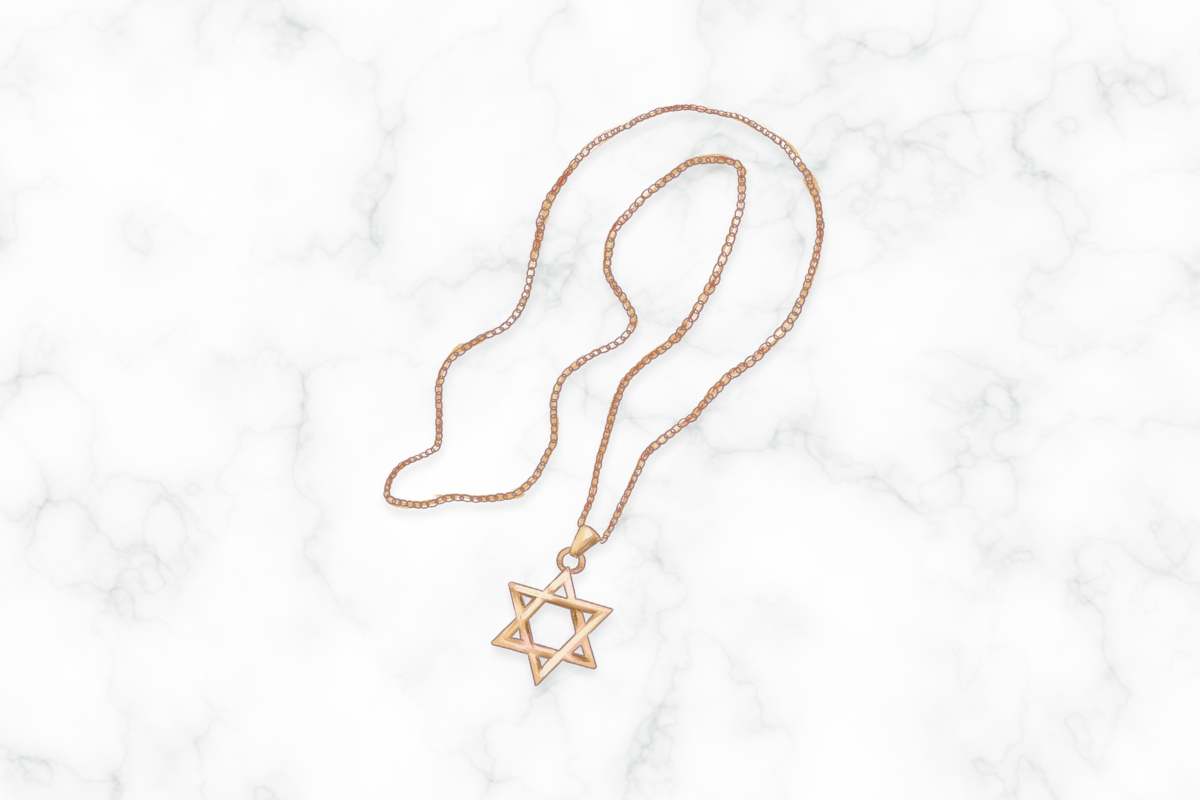Last year, like every year since my children were born, my mother-in-law brought us new Hanukkah shirts. But last year, unlike every other previous year, I was terrified to wear the shirts in public. When my son chose to wear his brand-new Hanukkah shirt – featuring a giant menorah on the front – to gymnastics class, I said nothing, but I internally panicked about what unwanted attention it would bring.
My fear is not unfounded. Since Hamas’s attack on October 7, antisemitism has skyrocketed around the world, in my country and even in my city, particularly against people wearing Jewish symbols.
For me, a mother to Jewish children who is not Jewish herself, I experienced a new dimension of what it means to parent Jewish kids in these past few months.
When I was pregnant with our first child, my husband and I talked through what we thought were all the major aspects of life as an “interfaith” family in Canada: circumcision, Christmas, implications of being patrilineal Jews and (of course) ways to placate disgruntled relatives. When we decided to raise our children as Jewish, we notably did not discuss whether it would be safe for our children to wear Hanukkah shirts to their gymnastics class.
“Interfaith” is a convenient shorthand for families like mine, but I have never felt that it described my family. “Interfaith” implies that we are a half-and-half combination. But while I was raised Catholic, I abandoned Christianity decades ago. And my children are not “half” Jewish. They are Jewish. My family is Jewish.
One of the beauties of raising patrilineal Jews is the element of choice. My husband and I chose to meet with the rabbi to discuss raising Jewish children without a Jewish mother. We chose the brit milah ceremony. We choose to make challah and celebrate Shabbat. Every day, we continue to choose this life for them.
Simultaneously, because half of their genes come from their Ashkenazi Jewish father, their Jewishness is also not a choice. In the opinion of some people, my children’s Jewishness was locked in when I married a Jewish man. To these people, my children are forever tainted by the ethnicity of their father, regardless of whether they celebrate Shabbat, of whether they are accepted in all Jewish communities, and of whatever their connection to Israel may or may not be. Or, as my friend crassly put it, raising our children to be Catholic would not have saved them from the Nazis.
On October 7, and on every day since, Hamas terrorists and other antisemites haven’t differentiated between patrilineal or matrilineal Jews. They did not inquire about views on Israeli policy or Zionism. They did not ponder rabbinical musings on what makes someone Jewish. And they did not give a single thought to any of my choices about my children.
Until last October, my husband and I had never discussed this aspect of parenting Jewish kids. I had honestly never imagined that we would need to shield our children from the news of a modern-day pogrom in Russia or determine if it’s safe for our son’s kindergarten teacher to know he’s Jewish. My husband and I spent so much time making sure our children were Jewish Enough, we never discussed those for whom their Jewishness would always be Too Much.
It feels naive to me now that we did not discuss antisemitism during my first pregnancy. We both knew the history (we even refused to consider a popular wedding venue because, 50 years prior, it had posted a sign that said “No Jews or Dogs allowed”), but neither of us thought it important to voice. Only since October 7, however, did we understand that our reasons for not discussing antisemitism differed. For me, I erroneously thought that dangerous antisemitism in Canada was so rare that it wasn’t worth considering. For my husband, antisemitism’s presence was so obvious and inextricable, it wasn’t worth mentioning.
My husband has refused to give his attention to the rise of antisemitism. He is aware of it, both in its current and its potential forms, but he will not let it scare him out of enjoying this life. His hopefulness is uplifting, and is not so accessible to me. He has a lifetime (a genealogy?) of reconciling a future mixed with antisemitic hate, but I am grappling for the first time with its depth and reality. I hold (Catholic?) guilt about it as well, a guilt that my children will experience hate that I never experienced.
Mirroring this rise in antisemitism, there is simultaneously a minimization and distortion, especially in online spaces, of that same antisemitism. The accusation is that focusing on antisemitism is a distraction to the real crisis in Gaza. But this is not an either/or, it is an “and.” And the truth is, I feel selfish to be concerned about potential violence when essentially the entire population of Gaza is experiencing actual atrocities beyond my imagination. But those atrocities don’t make the antisemitism any less real.
Over the past few months, I’ve leaned on other Jewish parents, particularly mothers. I am humbled by their mobilization in the face of their fear. I tell them how I am scared that my children’s last name sounds so Yiddish, how I am bitterly grateful that my blond-haired children don’t “look” Jewish. These Jewish parents nod, they understand. Despite their own grief, they find space to hold mine.
Some of these Jewish parents have taken their children out of public schools. Others are considering if other parts of the world (including but not limited to Israel) would be safer for them. I do not know what future choices any of us will be forced to make, but I have no doubt that we will strive for the best choices available to us.
I do know, however, that I chose for my family to be Jewish, and to whatever extent the choice is mine, I will choose it every time.








